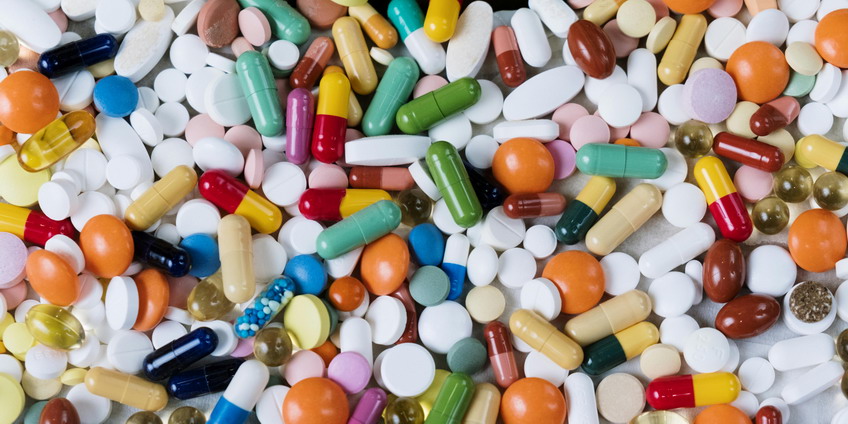014. Nature Don’t Want You to Use Supplements

Forget supplements, natural food is all you need.
If you eat a high quality food regularly and in sufficient amounts, any kind of supplementation is totally unnecessary. Steroids are harmful, but at least they really work. Supplements are less harmful, but they usually don’t work. In the year 2016, the American Medical Association summarized 20 years of scientific studies and found no benefits of supplementation, but unfortunately there was a huge amount of evidence of negative effects. Keep these facts in mind if you get an idea about buying supplements, they bring practically no benefits, just a bunch of negative side effects.
Yet, the supplements are selling like crazy. In fitness magazines you can always find an article claiming some supplement to be a holly grail of strength and muscle gains. In reality, the same supplement probably won’t bring any significant results, while it may be actually toxic. The truth is that a few big fitness companies own everything, from nutrition factories to fitness magazines. Therefore, they can publish any article they want and promote all kinds of garbage. It is hard to say if those articles are of any relevance, since it is just another way of advertising and nothing else. It would be the best to forget supplements all together and focus on eating high quality real food. More and more cyclists and Iron Man competitors are switching from energy gels to bananas and other fruit. Natural food is the best and you can’t go wrong with choosing banana over man-made gel.
Even if a supplement eventually produces some positive effects, those results are usually insignificant or temporary. For example, creatine can improve strength, speed, power, muscle gains, energy supply and help faster muscle recovery. Most of the time, it won’t cause any negative side effects, since creatine can be found in natural foods, like meat and milk. However, if consumed for a long time and in large amounts, the following can be experienced:
- unwanted weight gain due to water retention
- muscle cramps
- diarrhea
- high blood pressure
- liver dysfunction
- psychological issues
Although majority of creatine consumers have no negative side effects, when they stop consuming creatine, positive effects disappear quite quickly.
Protein powders are probably the safest supplements of all and can be consumed as a meal replacement or to increase total protein intake. For example, if you are too busy to prepare regular meals several times every single day, sure you can include a protein shake or two in your daily diet. Another situation that requires adding protein shakes to your diet is when you are unable to provide enough protein rich food in regular daily meals. However, if you plan to use protein shakes to overload your body with proteins in hope to get bigger and stronger, then please don’t do it.
It is well known in weightlifting communities that you need 1 gram of protein per pound of body mass per day (which is approximately equal to around 2 grams per kilogram). Then it went further to 2 grams and 3 grams per pound of body weight (around 4-6 grams per kilogram), where things started to get ridiculous and potentially harmful. Unless you are Mariusz Pudzianowski, 5-times World’s Strongest Man, you really don’t have to eat 10 eggs and 2 pounds of bacon for breakfast. In reality, you will rarely need more then 1 gram of protein per pound of body weight per day (around 2 grams per kilogram). Only if you train extremely hard for hours every single day, then ramp up to 1.5 grams of protein per pound of body weight per day (around 3 grams per kilogram). This should be your absolute upper limit, because anything above that can be dangerous for health, will heavily overload your digestive system and probably will never get into muscles. Period of such high protein consumption should not last longer then few weeks. On the other side, you must eat at least 0.5 grams of protein per pound daily (around 1 gram per kilogram), if you want any progress in power, strength and body mass. That would be a bare minimum for a weekend warrior. Here are the recommended daily amounts of protein depending on training intensity, frequency and volume:
- Minimum for low intensity/frequency/volume training: 0.5 g/lb or 1 g/kg
- Normal for medium intensity/frequency/volume training: 1 g/lb or 2 g/kg
- Maximum for high intensity/frequency/volume training: 1.5 g/lb or 3 g/kg
Commercial protein powders may be full of toxic chemicals, so it would be much better to make your own protein powder from natural ingredients. It is easy, cheap and healthy solution, plus you can adjust content to suit your taste and needs. Take dried milk powder and fruits of your choice, put everything in the blender and mix it with water or liquid milk – that’s it. Alternatively, you can choose dehydrated eggs as an even better source of protein then powdered milk.
Considering vitamins and minerals, they are beneficial only as elements of real food. Separate them from food, add chemicals to form pills and capsules, and they loose most of the nutritional value, become mostly useless or even toxic in higher doses. The only proper way to use vitamins and minerals in addition to real food is when you have a medically diagnosed deficiency and doctor prescribes the exact type and amount of supplementation.